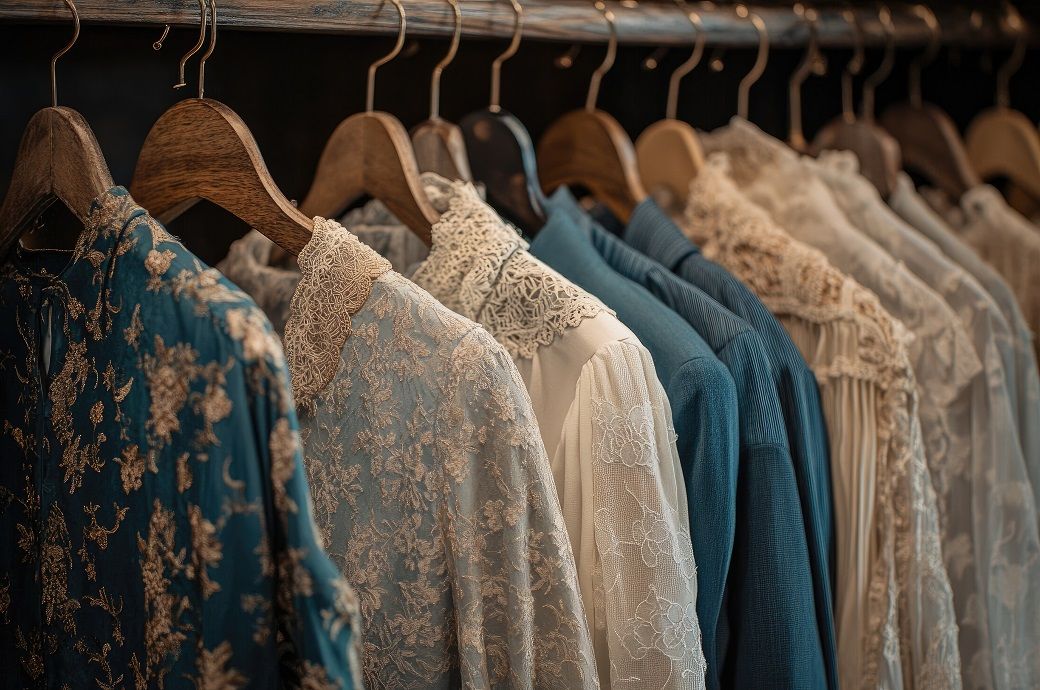Fashion
‘Slay, serve, survive’: How gen Z is rewriting the rules of work

For many of us, turning on an out-of-office is one of the last things to do before going on holiday. It is typically a concise message outlining that you’re on annual leave and who to contact in your absence. But for some gen Z workers, an OOO is becoming another way to add a bit of pizzazz to work culture; a way to showcase their personality, as well as their approach to the office.
With high summer now in full swing and offices temporarily thinning out as people take their summer jollies, social media is peppered with examples. “On vacation. Hoping to win the lottery and never return,” reads one. “The bad news is that I’m out of office. The good news is that I’m out of office,” reads another. Another brashly states: “Contact literally anyone else but me.”
While some are designed for virality – shared by employees of marketing companies that specialise in amplifying social media posts for brands – it’s a trend that is creeping into the wider workplace.
“Gen Z are used to informality in their communication and socialising styles, often preferring a more witty approach to messaging that gets straight to the point, and says something about their priorities,” says Mervyn Dinnen, author of two books about workplace culture and an HR specialist.
Gracie Board, a marketing executive at the brand building agency Zenif, says the company has jumped on the trend internally, explaining it’s all done for humour. Go-tos include “Knock, knock. Who’s there? Not me”, while emails begin with: “I hope this email doesn’t find you well”. “If anyone has seen our TikTok, they’ll know that we’re a young, dynamic team, and we all genuinely get on well with each other,” says Board. “We work in a very fast-paced environment, so we’re always looking for ways to brighten people’s day. No one in our team would ever take it badly.”
It’s a trend that their older colleagues may need to get to grips with. And it’s a topic that will be brought into the spotlight with the return next month of the hit TV show Industry, which depicts the generational divide between characters including rule-breaking young trader Harper Stern and her more traditional superior Eric Tao.
Gen Z – born between 1997 and 2012 – is expected to make up approximately 27% of the workforce by next year. While older generations “code switch” at work by adopting formal language, gen Z don’t, Mark McCrindle, co-author of the book Work Wellbeing told the BBC. “We’re starting to really pull down those barriers between our work and personal or social life,” said McCrindle. “We’re working from home, or in a mobile work environment, and that’s naturally creating a more relaxed workplace.”
Reddit is full of posts lamenting these generational differences. Email sign-offs are a particular site of variation. In place of “Best wishes” and “Kind regards”, some gen Z-ers prefer “Slay, serve, survive”, or – for a particularly tough day – “Heavy sigh”.
There are more bureaucratic differences, too, such as complaints about younger employees who don’t check emails outside their contracted hours, those who prefer to do video calls instead of meetings at the office, and staff who clock off on time to enjoy their “5-9” evening routine.
At least some of this moaning about gen Z may be rooted in envy. Older millennials grew up embracing “hustle culture” in the early 2000s. “WFH” didn’t exist and working through lunch and finishing late was normalised. So it’s understandable that when a gen Z colleague sets boundaries, it might make some older colleagues annoyed.
after newsletter promotion
“Gen Z prefer collaborative environments,” says Dinnen. “In my experience, they value flexibility and work-life balance, and reject formalities … Older generations tend to favour more formal structures and approaches in the workplace.” Yet they should, he suggests, consider a preference for informality “as an opportunity to create more open and inclusive cultures”.
Board notes other differences in the way younger generations work. “All gen Z have to put a smiley face on the end of their emails otherwise they feel as if they’re being rude,” she says. “It comes down to being people-pleasers and not wanting to offend anyone. Millennials worked their way up their careers in more of a corporate environment, whereas gen Z are trying to take the pressure off work and enjoy it more.”
To read the complete version of this newsletter – complete with this week’s trending topics in The Measure and your wardrobe dilemmas solved – subscribe to receive Fashion Statement in your inbox every Thursday.









